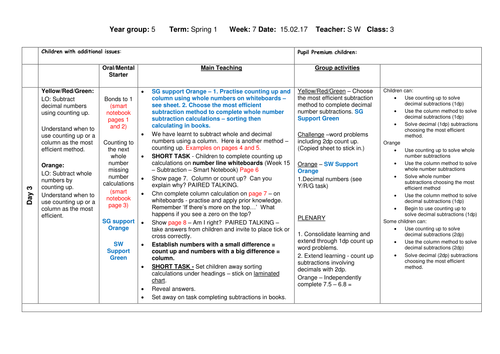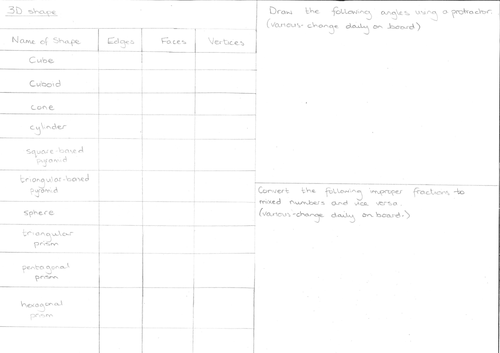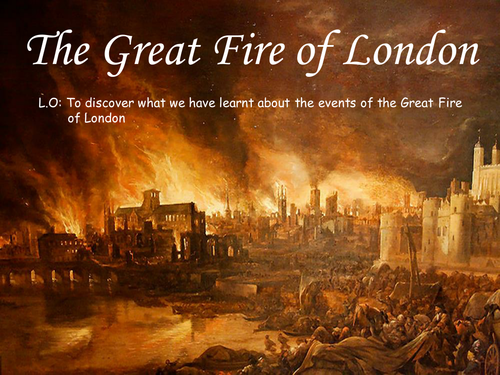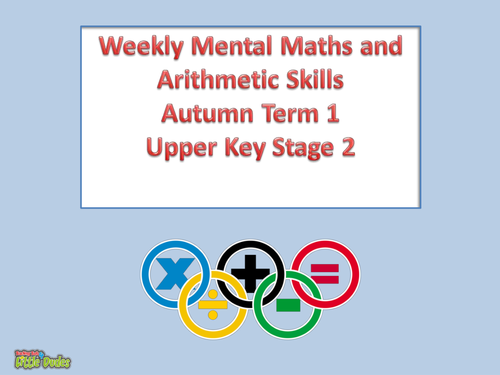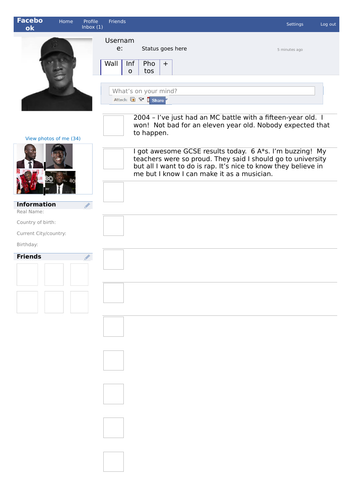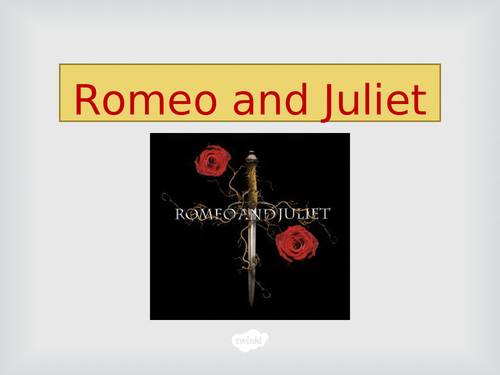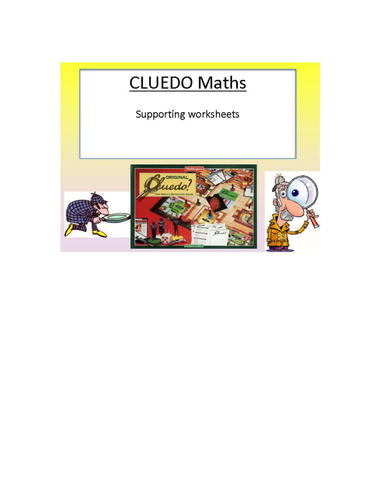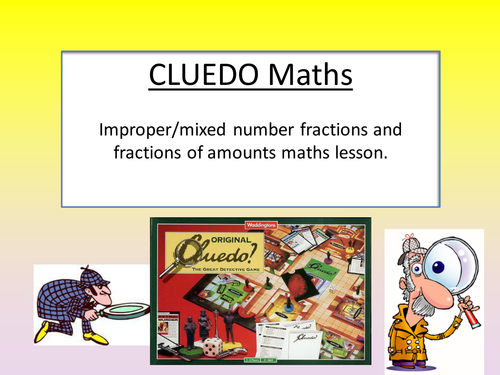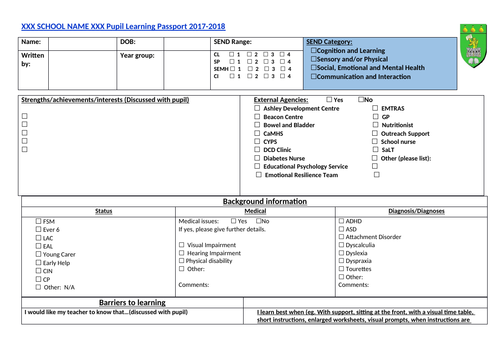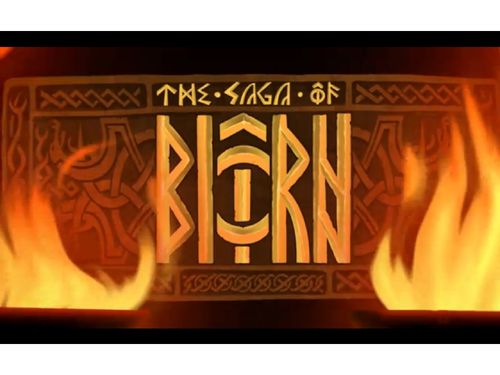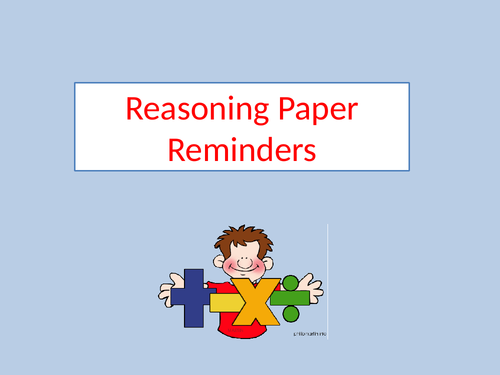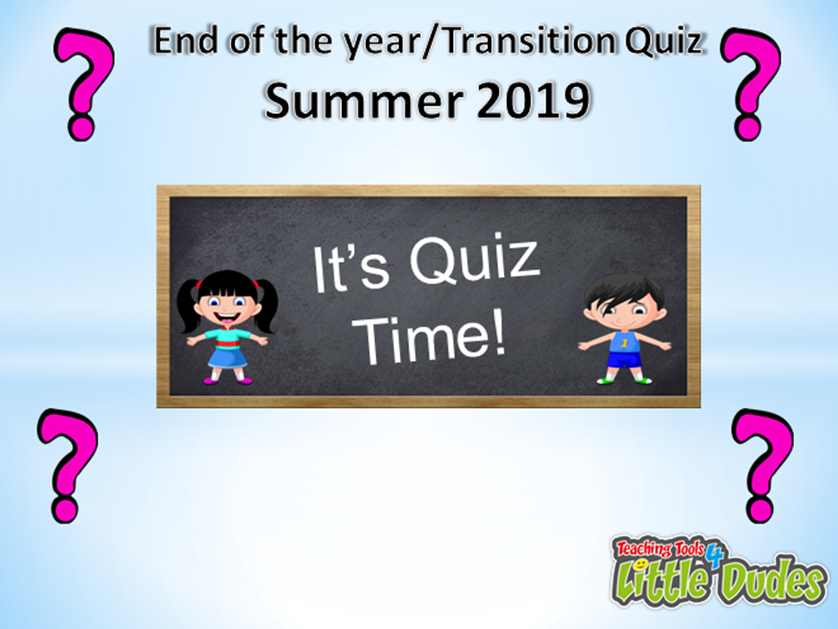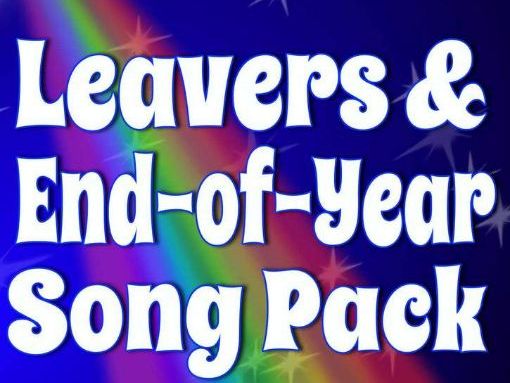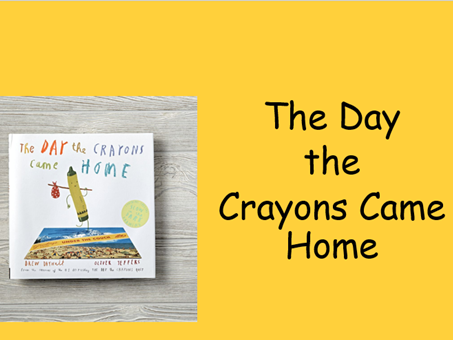
89Uploads
108k+Views
143k+Downloads
All resources

Y5 Adding decimals lesson plan
Tried and tested Y5 lesson plan, main teaching SMART Notebook and resources for adding decimals by counting up.
OUTSTANDING grade achieved and accelerated progress was highlighted in feeback.

Written Multiplication Resource Sheets - Dream Hotel
Find lesson plan and main teaching SMART Notebook in our paid section.

Key Stage 2/KS2 Year 6 Maths revision mats
Ideal for last-minute maths revision. 7 PDF files containing questions relating to key facts needed for new curriculum maths tests. My class have been filling in 1 or 2 daily just to keep their maths facts/knowledge fresh in their minds.
Mats include:
-conversions of units
-properties of 2D and 3D shapes
-doubles
-fraction/decimal/ percentage equivalents
-fractions of amounts
-types of line
-7 and 8 times tables

The Great Fire of London Quiz for KS1/Key Stage 1
This fun quiz re-caps all the key facts taught whilst learning about a significant event in history - The Great Fire of London. A great resource to end this unit of work and either consolidate or test the children's learning.

Key Stage 2/KS2 Weekly Mental Maths and Arithmetic Paper Skills
To match the new 2016 tests, this presentation has 7 weekly mental maths tests which covers knowledge from times tables to factors. In addition, there are 7 arithmetic paper sets of questions based on percentages. This was a key skill required for many questions on the 2016maths papers. The children are asked to calculate 10%, 20% then 5% as the weeks progress. The 7 weeks cover the first half of the Autumn term. More presentations will follow for the rest of the year, which will develop other aspects of mental maths and arithmetic skills needed for the new style maths tests.

Y5/6 Stormzy Reading lesson & resources (Ofsted/interview/observation)
What’s included:
Lesson plan for lesson 1 (used in observation)
Smart notebook main teaching presentation for lesson 1
Lesson 1 resources sheets
Lesson 2 - extension of lesson 1. True or false questions and ‘find and copy a word or phrase’ questions.
Lesson 3 - song lyric comprehension and questions
The first lesson comprises of a number of short activities and a main independent activity based on inference.
Short activities - predict, vocabulary, retrieve (true or false) and retrieve (match up).
Main (independent activity) - inference activity worksheet.
There are also differentiated activities for SEND pupils - all worksheets included.
The second lesson is a shorter lesson which is an extension of lesson 1.
The third lesson is questions on the song ‘Blinded by your grace’(Stormzy)
Please note: Lesson 1 and 2 uses the Stormzy biography text that can be found in on Twinkl)

Romeo and Juliet Lesson Observation
Lesson plans, PPT and resources to support an observation based around the play Romeo and Juliet.
Includes a lead in lesson for the day before observation.
TEACHER FOCUS: Reading Comprehension Skills-using the text as evidence to support ideas regarding characters.
KEY LO: To write in a way which shows children understand a key Shakespearean character and a particular time period.
Children will create a lonely heart advert for Romeo. Writing produced was great and the children really enjoyed the task. Can provide evidence for greater depth writing as the children can shift between formality at the beginning and later in the advert.

Djembe Drumming Assembly Script
Full script to go with an assembly based around the djembe drum alongside a performance. Please see free resources for drumming rhythm patterns. Also included is adaptable quiz.

Cluedo Maths - supporting worksheets
A fun and engaging lesson for upper KS2 but easily adaptable for lower KS2. Fast paced for accelerated progress. Tried and tested in Y6 (upper mid-low ability).
Pupils will use prior knowledge and extend learning of fractions of amounts and mixed number and improper fractions to work out ‘who done it’. Based on the popular game of Cluedo (most recently known as Clue) the task is to solve where, when and who committed the maths crime by calculating fractions of amounts, converting mixed number and improper fractions and identifying equivalent fractions.
Perfect for Ofsted, an observation, an interview or in addition to your weekly teaching.
*FIND LESSON PLAN IN FREE RESOURCES.
*Find main teaching PowerPoint in our PREMIUM resources. A ready-made, tried and tested, successful and highly rated lesson. Fully differentiated oral/mental starter, main session teaching and independent tasks.*
Another time saver from us to you!

Cluedo Maths main teaching Powerpoint
A fun and engaging lesson for upper KS2 but easily adaptable for lower KS2. Tried and tested in Y6 (upper mid-low ability).
Pupils will use prior knowledge and extend learning of fractions of amounts and mixed number and improper fractions to work out ‘who done it’. Based on the popular game of Cluedo (most recently known as Clue) the task is to solve where, when and who committed the maths crime by calculating fractions of amounts, converting mixed number and improper fractions and identifying equivalent fractions.
Perfect for Ofsted, an observation, an interview or in addition to your weekly teaching.
*FIND LESSON PLAN IN FREE RESOURCES.
*Find all supporting worksheets in our PREMIUM resources. A ready-made, tried and tested, successful and highly rated lesson. Fully differentiated oral/mental starter, main session teaching and independent tasks.*

Special educational needs SEND IEP template/Pupil Learning Passport
The file included is an updated/new IEP template which is renamed ‘Pupil Learning Passport’. It is used successfully in conjunction with face-to-face parental meetings once per term. We allocated 20-25 minutes each for the Autumn term parental meetings and 10-15 minutes each for the Spring and Summer term meetings, although longer may be needed depending on the nature of the outcomes, progress made as well as the individual circumstances surrounding the pupil .
Pupil Learning Passports (PLPs) can be used for SEND, LAC and disadvantaged pupils.
What does it do?
Outlines personal details and SEND category/categories
Links to SEND ranges
Outlines the pupil’s strengths, achievements and interests ( pupil discussions are held once a year prior to the first parental meeting).
Outlines external agencies involved
Outlines background information (status, medical and external agencies)
Incorporates pupil voice - ‘barriers to learning’ and ‘I learn best when’
States outcomes and learning targets (Autumn, Spring and Summer)
Outlines provision (intervention, resources, strategies and what I can do at home to help
Tracks attainment and progress data
Reviews outcomes
Incorporates parent views
Includes details of transition
Why is it more effective?
One document that is updated each term for one year and the follows the pupil into future year groups
One document that tracks pupil progress for their whole school career from Reception to Y6, or whenever they join your school
In-line with the SEND Code of Practice 2015, incorporating parent and pupil voice and views
Sections are written in conjunction with the pupil
It combines IEPs and Pupil Passports removing the need for two separate documents
Links directly to SEND Provision Map
Saves teachers time having ‘tick box’ options in various sections
All relevant information needed for referrals is in one place
All relevant information in one place to ensure all staff involved with the child is aware of provision, needs, resources and strategies
Acts as a transition document (class to class/teacher to teacher, across Key stages and to new schools)
Overall, it replaces a lot of singular documents and creates one meaningful and multi-purpose document for SEND pupils.

Year 3 & Year 4 Viking Myths & Legends Sagas Planning & Resources
What’s included:
*Lesson plan (2-2.5 weeks of lessons)
*Main teaching SMART Notebook presentation (76 slides)
*Accompanying worksheets and activities, plus a writing checklist, Non-chron WAGOLL and writing planning sheet
Learning objectives covered:
*Make inferences - reading comprehension using film (The Saga of Bjorn from The Literacy Shed) covering questions strands: true or false, put in order, retrieval, vocabulary and inference
*Punctuate a paragraph correctly (dictation)
*Design a Norse mythical creature
*Adverbials of time, place and manner
*Write a non-chronological report
*Identify and use pronouns (including possessive pronouns)
Vary openers using DADWAVERS
Plan and write a Norse myth/saga
Side note: We are studying Vikings in history and also began reading Viking Boy (Tony Bradman) as a class read before starting this unit of work (some parts - very few - were censored/missed out due to violence! I always read ahead in advance of reading aloud to the class) but overall they absolutely loved it. Additionally, it helped increase subject-specific knowledge about different Viking topics such as Viking way of life, Gods and the Valkyries.

KS2/Key Stage 2 Plastic Pollution - Persuasive texts/writing PLANNING and RESOURCES
Complete Key Stage 2 unit of work/scheme covering the global issue of plastic pollution. This persuasive writing unit covers a range of genre including letters, posters, descriptions and stories. It also covers several SPAG areas e.g. modal verbs and expanded noun phrases. Most resources have been provided with links/references to any resources not given. Includes 66 documents covering a potential 4-5 week unit of work - which is fantastic value for money! This will definitely save you lots of planning time. Extra ideas have been given at the end of the planning document to extend this to a full half term of work.

Key Stage 2/KS2 Reasoning Paper Reminders/Revision
This is an updated version of a PPT, which is packed full of over 50 slides, containing all of the subject knowledge/facts/info that pupils need to go over in the last few days before SATs tests. Ideal for last minute revision and in between papers during SATs week itself.

key stage 2/ks2 End of the Year/Transition/2019 Quiz
A fun-filled quiz which can be used either with your own class at the end of the year or with your new class as part of transition.
9 rounds in total with at least 10 questions in each. Rounds include:
Sport
General knowledge
Music
Pictures
Landmarks
Science and Nature
Flags
Films and
Technology
Enjoy!!

End of year - Key Stage 2/KS2 Leavers Assembly Song Bundle
Four song ideas for leavers’ assemblies. All lyrics rewritten to fit a school/year 6 context. Tried and tested in previous years - very successful and enjoyed by the year group (all songs required parental tissues at hand!)
Songs included are:
Seven Years Old by Lukas Graham
Castle on the Hill by Ed Sheeran
Hold by the River by James Bay
2002 by Anne Marie
Coming Soon-Look out for more song ideas to use with your summer 2019 leavers!

Y5/Y6 The Day The Crayons Came Home - PLANNING and RESOURCES
A follow-up resource to our planning and resources on The Day the Crayons Quit.
A lesson plan with 15 lessons and associated resources, including the main teaching Power Point. There are also 10+ ideas for additional lessons to extend the topic or to use at other times in the sequence of lessons provided. There are also several suggestions given for extra SPAG opportunties linked to the text.
Objectives covered are:
Prediction and inference about a character
Drama-hotseating
Vocabulary - using words in context/finding meaning
Using a thesaurus and dictionary
Locating and summarising information
Research on a topic to produce a leaflet
Writing - a postcard
Writing - an interview
Writing- book review
Punctuating speech
Using ISPACED
Persuasive writing
Reading comprehension: retrieval, inference, true/false, word meaning and APE
PLUS LOTS MORE IDEAS!

Year 3 & 4 Meerkat Mail - Recounts - Planning & Resources
*Lesson plan (11 lessons) Day 2 was split over 2 lessons.
*Main teaching SMART Notebook presentation (40 slides)
*Accompanying worksheets and activities, plus a writing checklist, Letter WAGOLL and writing planning sheet
Learning objectives covered/activities:
*Increase familiarity with a wide range of books.
Draw inferences - Observe/Wonder/Infer
*Draw inferences such as inferring characters’ feelings, thoughts and motives from their actions, and justifying inferences with evidence - Use the text to create a FACT FILE for a character
*Inference - ‘What it says/what it means’ sheet
*Use varying and technical vocabulary to write a post card
*Use conjunctions to extend sentences (when, if, because and although)
Y3 – when, before, after, because
*To identify how language, structure, and presentation contribute to meaning in a text - TEXT DETECTIVE
*Identify feelings and how they change throughout the story - thought shower and use to write a ‘perfect’ paragraph
Proof-reading activity
Plan and write a letter (recount)
Develop editing techniques using editing cards/stations
*PLEASE NOTE - EDITING STATIONS POWERPOINT WAS SOURCED FREE ON TES AND ADAPTED TO SUIT THIS TASK.

Year 3 & Year 4 LEGO Instructions & Explanations (Planning and resources)
What’s included:
*Lesson plan (13 lessons - 3 weeks)
*Main teaching SMART Notebook presentation (59 slides)
*Accompanying worksheets and activities, plus 2 x writing checklists and writing planning sheet.
Learning objectives covered:
*Make inferences - Observe/wonder/infer task sheet
Vocabulary match-up starter
Improve/upgrade instructions task
Identify and use subordinating conjunctions
*Punctuate a paragraph correctly (dictation)
*Write a set of instructions
*Use a dictionary to correct spellings/editing lesson
*Proofread and explanation text and know explanation text features
*Use apostrophes for possession (Y4) and contraction (Y3)
Write relative and subordinate clauses
Design a Lego Card
Build vocabulary and upgrade sentences
Plan an write an explanation text around a new Lego card
Edit and improve explanation text
Other starter/short tasks throughout the week linked to grammar/punctuation
PLEASE NOTE: Lesson 8 requires each pupil to each have a packet of LEGO CARDS. There are plenty to show online but the kids LOVED getting their own pack. Sainsburys give them out at certain times of the year and they can also be bought on eBay.

Year 3 & Year 4 Whole Class Reading Week 4 Stig of The Dump reading comprehension 3 lessons
Week 4 Stig of The Dump
Whole class reading/extract comprehension/guided reading resource with an adaptive teaching approach for independent tasks (3 levels of differentiation).
3 lessons which can be taught across one week depending on your timetable or over 3 weeks. The lesson duration is between 30-45 minutes.
Each lesson covers a different reading focus:
Lesson 1 - Vocabulary and prediction
Lesson 2 - Retrieval and inference
Lesson 3 - Sequence/summarise/explain
Included is the text extract linked to the lesson; a main teaching presentation which is delivered whole class with opportunities to practice the skill needed for the independent task. This covers a blurb, information about the author, practice questions based specifically on the skill being taught and a differentiated/adapted independent task (3 levels).
The independent task is sized to fit on a sticky labels (A4 page with 4 labels) which pupils stick into reading comprehension books to then answer the questions.
The texts chosen are specific to the ability of Year 3 and Year 4 but due to the nature of whole class reading, are suitable for those working below ARE.
There are 8 weeks (24 lessons) in this block to cover a half term which have been uploaded separately, week by week.
If you have time (ha!), please leave us a review. We would love to hear your feedback.

